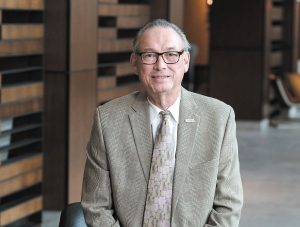Subscriber Benefit
As a subscriber you can listen to articles at work, in the car, or while you work out. Subscribe Now
Senior judge
Indiana University Robert H. McKinney School of Law, 1982
Why did you decide to enter the legal profession?
I have always had a concern for victims of bullying, oppression and cheating. It originated with my scouting experience of Native American lore. Learning the history of the Trail of Tears, the Sand Creek Massacre, the Wounded Knee Massacre and the Ghost Dance suppression opened my eyes to prejudice long before I knew of my family’s own persecution in the World War II internment camps. The desire to right wrongs and defend mistreated people has been there since my youth.
What does “diversity, equity and inclusion” mean to you?
Understanding that prejudice, inequity and exclusion are tools of oppressive superiority. Proponents of DEI are merely trying to level the playing field of life and existence. Contrary to the beliefs of DEI opponents, it is not a movement to gain superiority or replacement over its detractors.
How did you get involved in DEI work, and why have you stuck
with it?
My DEI professional experience began in 1990, when I became actively involved in the Judicial Division of the American Bar Association. It broadened my horizon beyond southeastern Indiana. As I rose through the chairs of the division, I learned from a cadre of diverse judges the judiciary’s role to guarantee the public’s expectations of trust and confidence in the system. The ABA experience opened doors to being faculty at the National Judicial College, becoming the judicial fellow for the National Highway Traffic Safety Administration and becoming the judicial member of the U.S. Congressional Task Force on Commercial Driver Licensing. These experiences greatly enhanced my DEI network, learning and capabilities while paving a professional pathway without an off ramp.
What would you say to someone who perceives “DEI” as a business “buzzword”?
I would ask, “What leads you to that opinion?” What influences their opinion is a starting point. In defense, DEI is exactly what it says — diversity, equity, inclusion. There is no hidden meaning. It is not a buzzword. A buzzword is a counter-expression that enables a person to express displeasure without having to utter the word, words or concept that they disdain. Thus, we have “woke” as a buzzword for the DEI suppressers to be able to protest DEI without ever saying “DEI.” Buzzwords only serve to change the narrative away from the intended definition of the original proponent.
What is the most significant change you’ve seen in the legal profession since you began your career?
Technology. During my career, I have gone from carbon paper to digital copy; from IBM Selectric to computer to voice-activated text; from landline to cellphone; from physical trace evidence to digital tracking evidence; from fingerprints to DNA; from metes and bounds property descriptions to GIS and GPS. We have gone from 92 case filing idiosyncrasies to a single uniform case filing system (Mary DePrez is a savant). The law library as a physical footprint in the law office no longer exists. No more multivolume Decennial Digests or Law Encyclopedias or West Key Words. The Disciplinary Commission eliminated an entire lawyer discipline record system on 3×5 index cards and moved to a total electronic case management system. And a TV camera in the courtroom will likely no longer generate an inquiry by the JQC.
What’s the best advice you’ve ever received?
A judge should never be concerned with who wins or who loses in a lawsuit.
How do you spend your free time?
I tell folks I swing a hammer rather than a golf club. I am a handyman and like to build things and do home improvement projects. My wife and I have designed and built two new homes and did a total remodel and addition to our current house. She is equally involved in the labor. My mother wanted me to be an architect. The other occupier of my free time is the trite answer of all retirees: travel. Did Spain, Portugal and Morocco earlier this spring.
What was your favorite — and least favorite — class in law school?
Favorite: Criminal Law and Procedure. Least favorite: Tax.
You’re a leader of APABA-IN, even in retirement. Why is it important to continue that work?
They keep me young in spirit and engaged in the profession. Most of the members are a generation younger than me and the law students are on the cusp of being two generations younger. They give me a professional bond that did not exist in southeast Indiana, or in Indiana, until APABA-IN’s birth approximately 10 years ago. I hope to someday see one of them rise to be Indiana’s first Asian American appellate or federal judge.
You were the state’s first Asian American judge. How has the representation of Asian Americans in Indiana law changed?
I believe there are now 10 judges, senior judges and magistrates of Asian American heritage. However, the appellate and federal benches of Indiana still need to be achieved. Among the practitioners, there has been a tremendous growth in the next generation of lawyers. Also, IU McKinney and IU Maurer have had active chapters of the Asian Pacific American Law Students Association for many years. We can make referrals when an inquiry is specific for an Asian American lawyer. Asian business is heavily invested in Indiana, with Honda, Toyota and Subaru. The feather in our cap will be this November when Indianapolis hosts the Annual Convention of the National Asian Pacific American Bar Association. More than 2,000 Asian American lawyers will be in town to celebrate their heritage and presence within the legal profession.
Please enable JavaScript to view this content.
